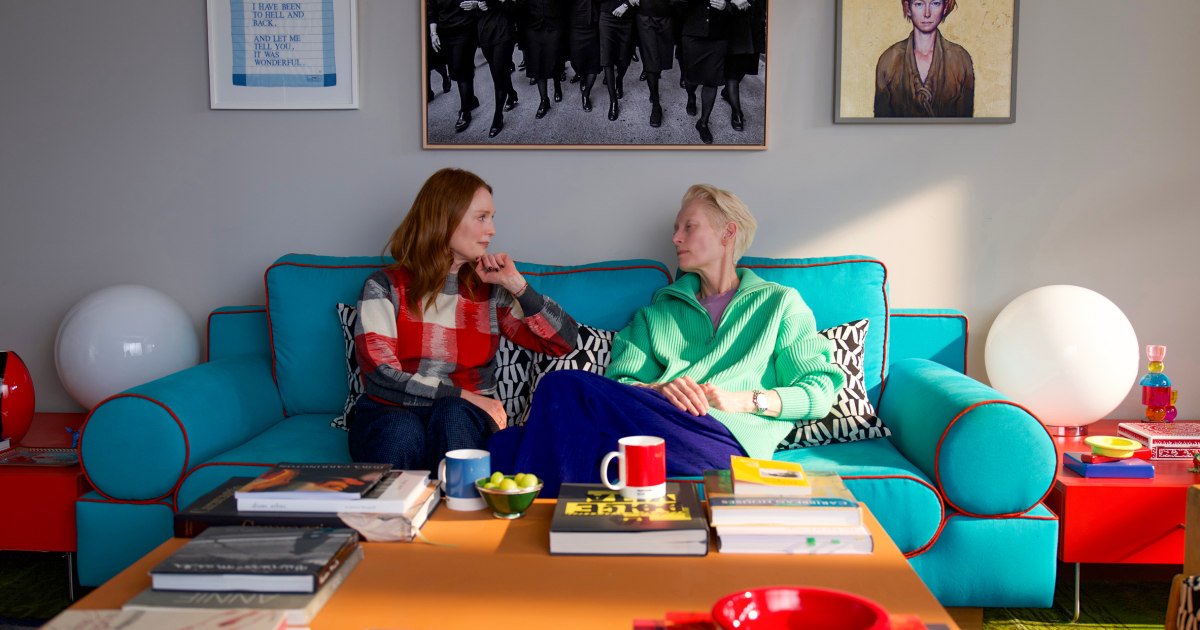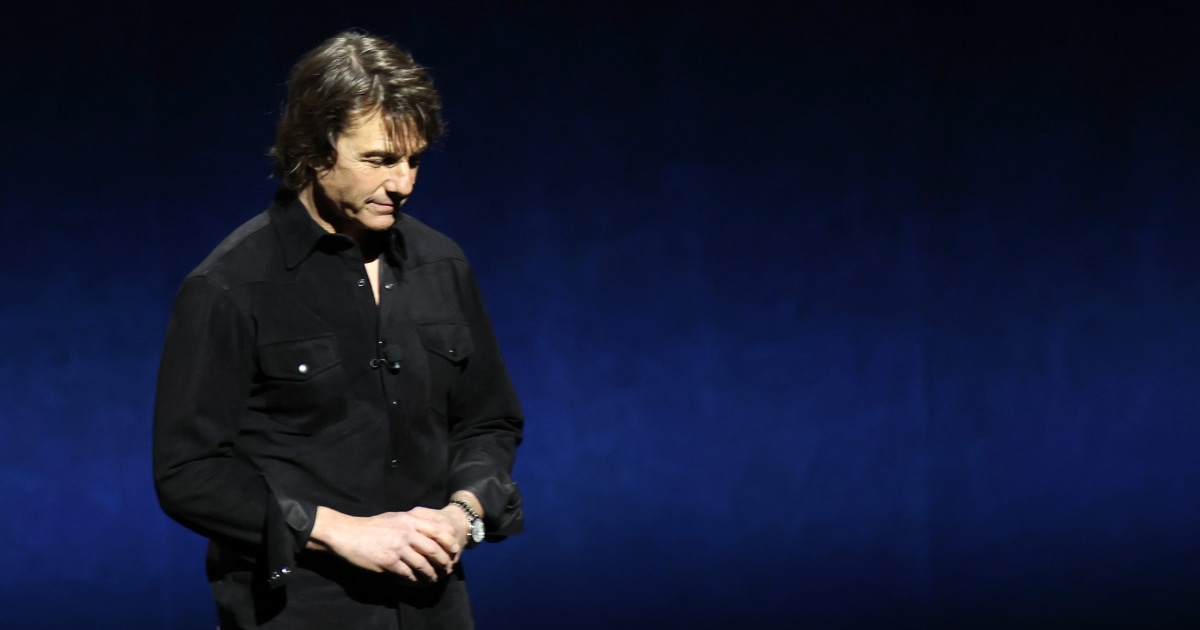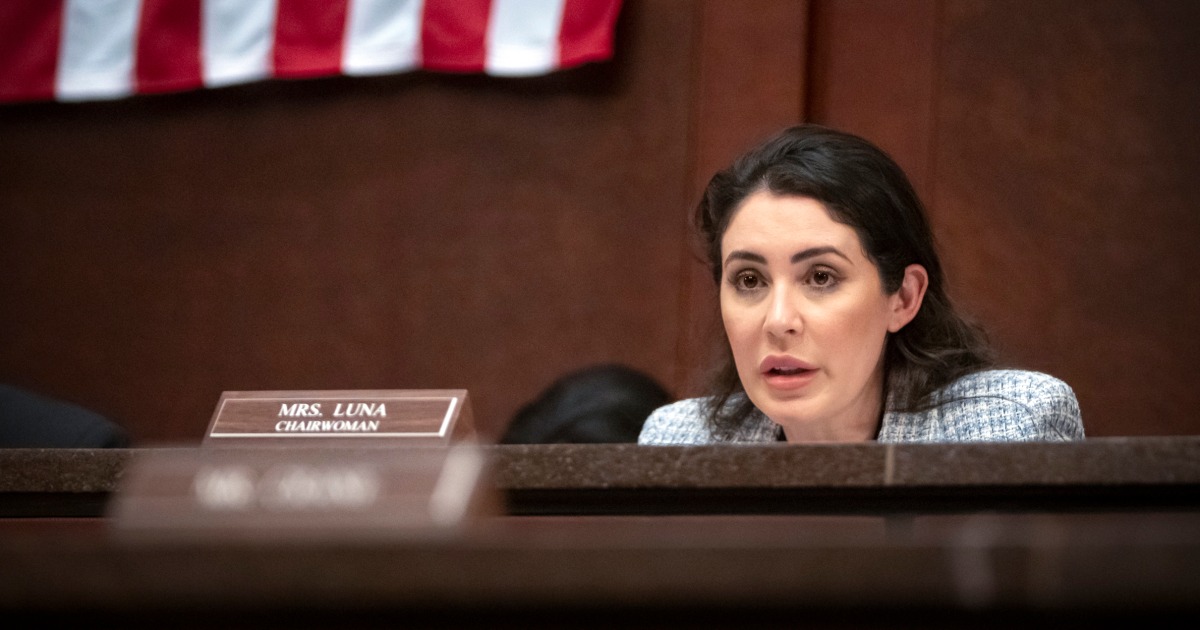After last year’s industrywide strikes rendered cinema-going a bit less exciting, film festivals have been returning in full force the past few months, renewing excitement around filmmaking at large.
Following a summer of star-studded events in Cannes, Venice and Toronto, the 62nd annual New York Film Festival opens at Lincoln Center on Friday for 17 days of lit-up silver screens and sparkling red carpets. And this year, a new and returning collection of creators are showing festival-defining, queer-centric works that reflect the newly enlivened cinematic environment — with Spanish auteur Pedro Almodóvar’s “The Room Next Door,” starring Tilda Swinton and Julianne Moore, and Italian filmmaker Luca Guadagnino’s “Queer,” starring Daniel Craig and Drew Starkey, programmed in the prestigious Centerpiece and Spotlight Gala spots.
“It didn’t even occur to me that we had two queer filmmakers in such prominent slots until this piece,” Dennis Lim, the artistic director of NYFF, told NBC News of the selections that, along with the opening- and closing-night picks, set the tone for the festival.
“For these positions, we tend to look for films that are among the most anticipated of the year,” he said. “Our ambition is to make selections that make the case for cinema as a relevant and vital art form at that moment in time.”
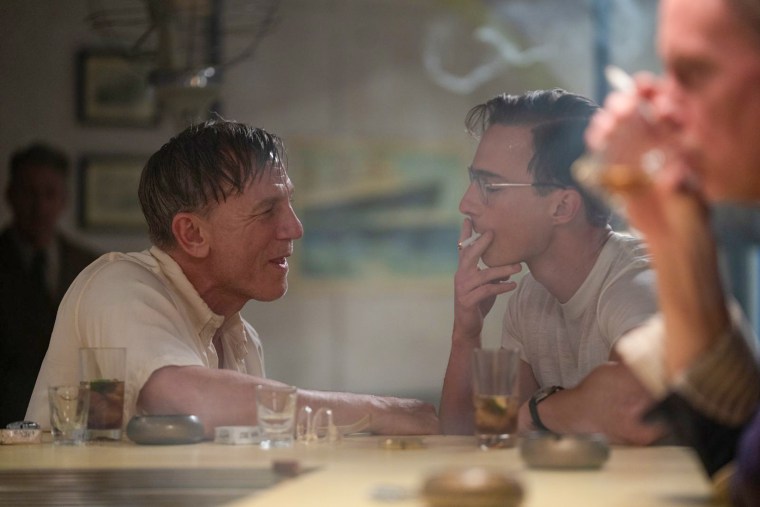
Lim, the NYFF’s former longtime director of programming, pointed out that this year’s cornerstone titles also come from creators who have a long relationship with the organization, with Almodóvar showing his first film at NYFF in 1988 (“Women on the Verge of a Nervous Breakdown”) and Guadagnino becoming a regular fixture at Lincoln Center after 2009’s Swinton-starring “I Am Love.”
This year, the directors have submitted two very different experimental films based on literary works, both of which premiered in Venice earlier in the month.
Following up on last year’s “Strange Way of Life,” “The Room Next Door” is Almodóvar’s first English-language feature and his latest contribution to a series of contemplative works on mortality, with Swinton and Moore playing old friends who reunite as one of them prepares for death. With “Queer,” which stars Craig as a self-destructive American expat looking for succor in post-war Mexico City and beyond, Guadagnino takes a page from Almodóvar’s earlier films, exploring various forms of obsession — from the erotic to the narcotic.
“I think there’s something really special about [Almodóvar’s] films from the last decade or so, where he’s been confronting questions of aging and mortality in ways that are really direct and moving,” Lim said, describing the director’s adaptation of Sigrid Nunez’s 2020 novel, “What Are You Going Through,” as a film “about what it means to live in the face of death.”
“And I think what makes Luca’s work so interesting is his willingness — and Pedro has done this as well in other films — to really confront and explore the complexities of desire of all stripes,” he said, touting Guadagnino’s period piece based on William S. Burroughs’ 1953 novel, “Junkie,” as a bold exploration of “desire, obsession, and addiction.”
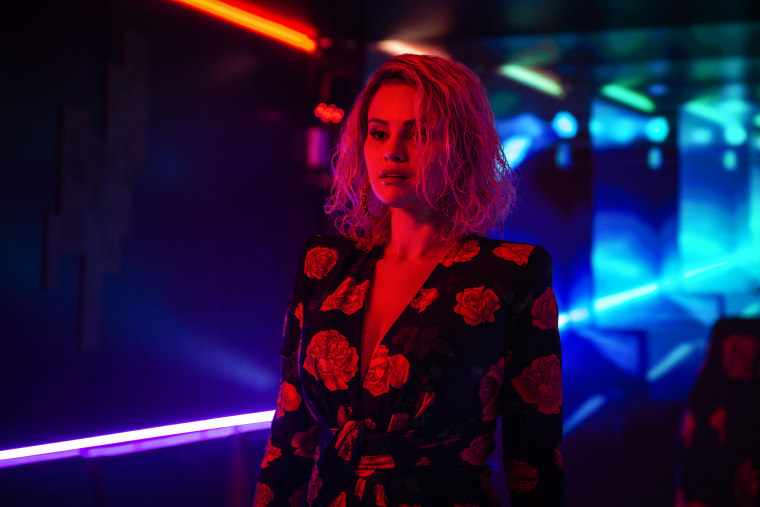
But Almodóvar and Guadagnino, who’s already had one massive hit this year with the sweaty, off-beat comedy “Challengers,” aren’t the only buzzy festival alumni showing inventive queer-themed works in this year’s lineup. The program also features new films from French auteurs Jacques Audiard (“Rust and Bone”) and Alain Guiraudie (“Stranger By the Lake”).
While Guiraudie’s “Misericordia,” about an out-of-work baker who inserts himself into his deceased mentor’s family, marks an exciting moment for lovers of expertly crafted, atmospheric dark comedies, Audiard’s Cannes sensation, “Emilia Pérez,” a darkly lit, genre-defying musical about a lawyer who agrees to help a cartel boss fake her own death in order to finally undergo gender-affirming surgery, is perhaps the most high-profile film of the festival overall.
“It was very clear from the first Cannes screenings that this would be one of the more talked about films of the year,” Lim said of Audiard’s ambitious crime drama starring Karla Sofía Gascón, Zoe Saldaña and Selena Gomez. “To be dealing with this kind of subject matter, but to stage it with this exuberance and as a musical, is really bold.”

Joining the likes of Guiraudie and Audiard are more under-the-radar returning directors like Truong Minh Quý and Matías Piñeiro; documentarian R.J. Cutler and David Furnish, who directed “Elton John: Never Too Late”; and first-time feature director Yashaddai Owens, who delivers a portrait of a young James Baldwin in “Jimmy.”
There are also a handful of directors who appeal to queer viewers — whether or not their films can actually be labeled LGBTQ — like “Jackie” and “Spencer” director Pablo Larraín. This year, the Chilean filmmaker returns to the festival with “Maria,” the third installment in his unofficial trilogy of biopics about haunted women, which stars Angelina Jolie as the operatic gay icon Maria Callas.
This array of offerings reflects how the festival, which has been shaped by vastly different queer creators over the years, is continuing to evolve its approach to programming, according to Lim.
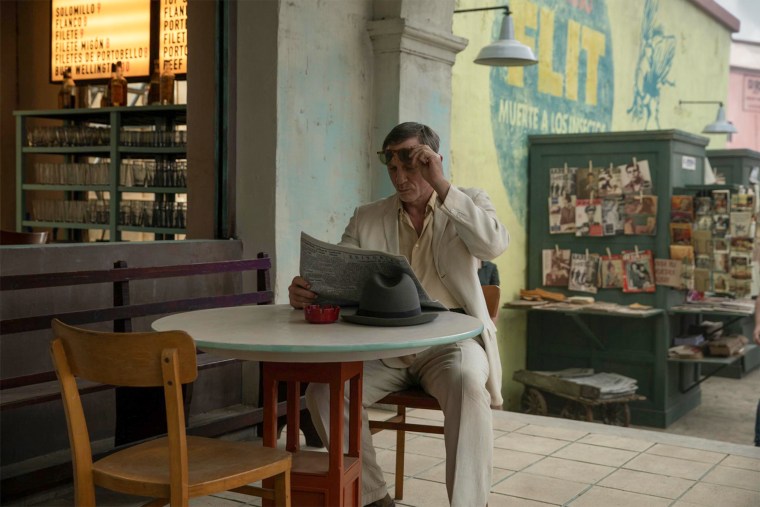
“There are many ways to think about queerness, and there are many ways to account for it in a program. Sometimes, it has to do with what’s on screen, and sometimes it has to do with something maybe more subtle,” Lim said. “What’s been interesting for me is to think of, in what ways can a film be queer? Does a queer film need to have gay characters or can its queerness be manifest in other ways?”
Lim pointed to the “queer sensibility” behind “The Room Next Door,” the unclassifiable quality of “Misericordia,” and the unique ways in which Truong’s “Việt and Nam” and Piñeiro’s “You Burn Me” deal with romance and legacy.
“Films do not come from nowhere; they’re made by people who live in the same world as us,” he said. “This year, the complexities of the world we live in are very apparent in these films.”


